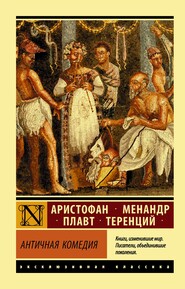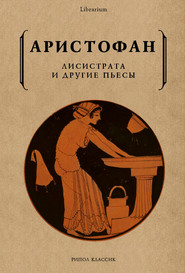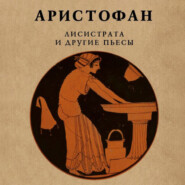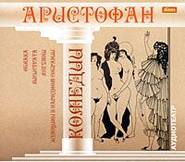По всем вопросам обращайтесь на: info@litportal.ru
(©) 2003-2024.
✖
The Eleven Comedies, Volume 1
Автор
Год написания книги
2018
Настройки чтения
Размер шрифта
Высота строк
Поля
308
The goddess of fruits.
309
Aristophanes personifies under this name the sacred ceremonies in general which peace would allow to be celebrated with due pomp. Opora and Theoria come on the stage in the wake of Peace, clothed and decked out as courtesans.
310
Aristophanes has already shown us the husbandmen and workers in peaceful trades pulling at the rope to extricate Peace, while the armourers hindered them by pulling the other way.
311
An allusion to Lamachus' shield.
312
Having been commissioned to execute a statue of Athené, Phidias was accused of having stolen part of the gold given him out of the public treasury for its decoration. Rewarded for his work by calumny and banishment, he resolved to make a finer statue than his Athené, and executed one for the temple of Elis, that of the Olympian Zeus, which was considered one of the wonders of the world.
313
He had issued a decree, which forbade the admission of any Megarian on Attic soil, and also all trade with that people. The Megarians, who obtained all their provisions from Athens, were thus almost reduced to starvation.
314
That is, the vineyards were ravaged from the very outset of the war, and this increased the animosity.
315
Driven in from the country parts by the Lacedaemonian invaders.
316
The demagogues, who distributed the slender dole given to the poor, and by that means exercised undue power over them.
317
Meaning, the side of the Spartans.
318
Cleon.
319
It was Hermes who conducted the souls of the dead down to the lower regions.
320
The Spartans had thrice offered to make peace after the Pylos disaster.
321
i.e. dominated by Cleon.
322
There is a pun here, that cannot be rendered, between [Greek: apobolimaios], which means, one who throws away his weapons, and [Greek: upobolimaios], which signifies, a supposititious child.
323
Simonides was very avaricious, and sold his pen to the highest bidder. It seems that Sophocles had also started writing for gain.
324
i.e. he would recoil from no risk to turn an honest penny.
325
A comic poet as well known for his love of wine as for his writings; he died in 431 B.C., the first year of the war, at the age of ninety-seven.
326
Opora was the goddess of fruits.
327
The Scholiast says fruit may be eaten with impunity in great quantities if care is taken to drink a decoction of this herb afterwards.
328
Theoria is confided to the care of the Senate, because it was this body who named the [Greek: The_orhoi], deputies appointed to go and consult the oracles beyond the Attic borders or to be present at feasts and games.
329
The great festivals, e.g. the Dionysia, lasted three days. Those in honour of the return of Peace, which was so much desired, could not last a shorter time.
330
In spite of what he says, Aristophanes has not always disdained this sort of low comedy—for instance, his Heracles in 'The Birds.'
331
A celebrated Athenian courtesan of Aristophanes' day.
332
Cleon. These four verses are here repeated from the parabasis of 'The Wasps,' produced 423 B.C., the year before this play.











